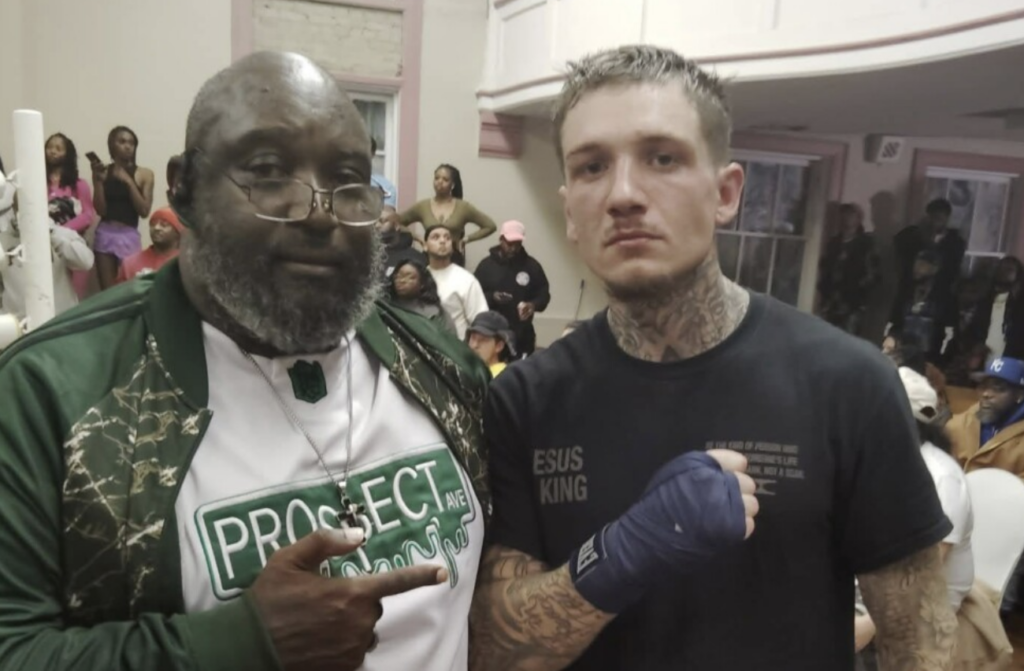An atheist soldier from Fort Riley says his higher-ups in Iraq didn’t like his non-Christian ways

Army Spc. Jeremy Hall did two tours in Iraq, saw his share of fire and came back in one piece. Too bad he needs a bodyguard to keep his fellow soldiers from attacking him now that he’s back in the States.
Hall’s problems started in the middle of Thanksgiving dinner in 2006, during his second tour. One of the men at Hall’s table asked that they pray together. The soldiers joined hands — except for Hall. Most didn’t know he was an atheist until that moment.
“I joined as a religious person,” says the 23-year-old Hall, who is now stationed at Fort Riley. “Then I met some other people with different ideas, and I actually read the Bible. It didn’t make any sense to me, so I decided for myself. It really doesn’t matter anyway. You’re going to die and pay taxes either way.”
Hall kept those opinions to himself at the dinner. He says he declined to pray as respectfully as he could. When word got around the tables that he wouldn’t pray, he was confronted by a senior-ranking staff sergeant, who demanded to know why. Hall explained that he was an atheist — then explained what an atheist was when the sergeant didn’t understand.
“He basically told me to get the hell out of there and that I couldn’t eat with them,” Hall says. “I just sat there quietly and finished it. A Mormon girl actually stood up for me and said they shouldn’t do that, because it’s not just me. They give Mormons shit, too.”
In July 2007, Hall decided to find out how many soldiers agreed with him. He approached his Army chaplain for permission to hold a meeting of atheists, freethinkers and any other non-Christians. He got the chaplain’s blessing and posted fliers for the meeting.
“There wasn’t any support for anyone like me, so I just wanted to provide it. Strength in numbers,” Hall says. “I wasn’t asking for domination, just that we are here, and we are real, and you’ve got to deal with us.”
Hall’s fliers were ripped up or defaced. “‘Fag, God loves you, you’re going to hell,’ all kinds of crazy shit,” Hall says of the writing on the notices. But the nonbelievers still showed up. So did Maj. Freddy Welborn, Hall says.
The meeting didn’t delve into deep questions. The few who attended didn’t get much further than who they were and where they were from when Welborn stood up to confront the group. According to Hall, Welborn threatened to use the meeting as justification to keep Hall from re-enlisting, as well as potential action under the Uniform Code of Military Justice.
As far as Hall knows, Welborn never went through with his threats, and in November 2007, Hall left Iraq for a station at Fort Riley. Hall says the officers he served under in Iraq must have relayed the fact that he was an atheist to the base. “Everybody knew about me before I got there,” he says.
On September 17, 2007, Hall filed a federal lawsuit in Kansas, alleging that his right to be free from government endorsement of religion under the First Amendment had been violated and that he’d faced retaliation for his views. The suit names Welborn and Defense Secretary Robert Gates as defendants.
Lawrence lawyer Bob Eye filed the suit and says he had been studying other cases of non-Christians being mistreated in the armed forces. Eye had been working with the nonprofit group Military Religious Freedom Foundation. “We’d been looking through all the complaints the MRFF had gotten and trying to determine whether any of them had a basis to succeed when Hall’s case popped up,” Eye says. “There was a disturbing similarity to some of these complaints about these Christian dominionists, not just in one unit or branch, but really any military installation you went to.”
Eye says Christian dominionists believe that government institutions should be governed by biblical law. “Their feeling is, we’re not in Iraq for geopolitical reasons — it’s the clash of Islam and Christianity,” Eye says. “They think the military should have a religious test that each member must adopt and pass for admittance. Clearly there are a lot of people who would probably support that, but fortunately we have constitutional ways to prohibit that. And what we’re alleging here is that there’s now a manifestation of government policy that is promoting religious belief, and that’s dangerous territory.”
In December 2007, Hall took photos of an Ann Coulter poster on display at Fort Riley that had what his lawsuit describes as an “anti-Islamic statement.” Hall sent photos to the MRFF, which sent them to media outlets. When Fort Riley’s command became aware of this, it issued a memo notifying everyone on base that Hall was engaged in a lawsuit.
After the memo went out, Hall says, platoon Sgt. Michael Van Hise told Hall that he was no longer up for a promotion he expected to get in February. Van Hise said that because Hall couldn’t set aside his beliefs to pray with his troops, it would limit his ability to lead effectively. Later, another soldier told Hall that he’d be “eaten alive” by the president of the promotions board, Command Sgt. Maj. Kevin Nolan, according to his lawsuit.
Both Van Hise and Nolan are still at Fort Riley. The base’s public affairs department tells The Pitch that neither Van Hise nor Nolan nor any higher-ups will comment because of the pending litigation. Welborn retired from the service in February and couldn’t be reached for comment.
Hall claims that several officers argued with him about his beliefs and whether his atheism would keep him from being an effective leader. “There was all this bullshit. They ask me a question like, ‘What if a soldier’s suicidal and you have to pray with him?’ I said I’d call a chaplain,” Hall says. “Then they’d come back with, ‘What if a chaplain’s not available?’ Come on, can you box me in any tighter? That’s a question that you can’t answer right.”
Fort Riley command, worried that Hall was in danger of being attacked by one of the more fervent Christian soldiers, has sometimes assigned him a guard to accompany him on and off the base.
Hall’s lawsuit doesn’t ask for money. Eye says Hall’s main goal is to prod the military to issue an order that forbids soldiers from discriminating or persecuting non-Christians. “You can’t use someone’s atheism or religious beliefs as a means to judge their performance. I don’t for a moment anticipate the Christian dominionist faction is going to change their views because of that, but I would expect that the chain of command still means something.”




